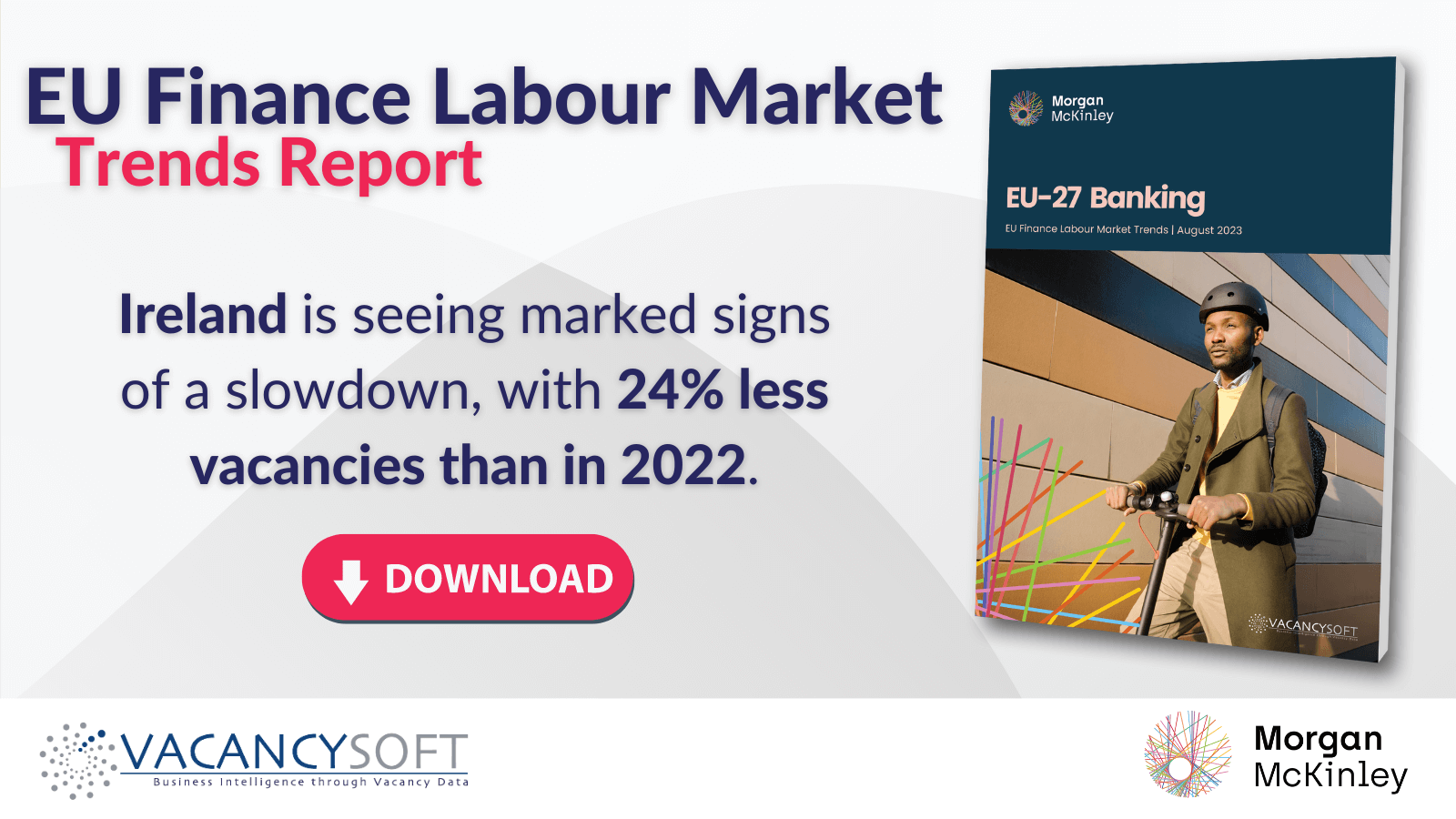Banking – EU Finance Labour Market Trends Report, August 2023
Banking recruitment in Paris hits record levels as UK down 40% on 2022

Key findings include:
- Vacancies in France hit record levels in 2022, this year’s volumes are equivalent
- UK sees sharpest fall in Europe, down 40% on last year
- Poland slowing down in 2023, with 22% less vacancies than last year
- Germany has the third-highest total in EU, and has seen an uplift of 2.5% on last year.
DOWNLOAD THE REPORT
DOWNLOAD THE REPORT
London has always been the financial capital of Europe, and up until Brexit, was the primary hub for the EU too. Now with the passing of the transition phase, the big question is how effective has the EU been in repatriating jobs away from the UK, and with that, which cities have been the biggest winners?
Hence what is interesting is that when comparing the year-on-year totals, we see that the EU-27 have fallen by 11%, in terms of the monthly average. Equally, the fall has not been consistent by country; instead, there has been a huge variance by country, with France hitting record levels, according to the latest Banking Labour market trends report by Morgan Mckinley and market data analysts Vacancysoft.
James Chaplin, Chief Executive – Vacancysoft – Comments
“The impact of Macron looking to boost the French banking sector post Brexit is starting to be seen in the growth in recruitment, in Paris in particular. The question is whether this growth is sustainable, or if this is a one-off surge.”
When spotlighting the banking sector in Germany, it is worth remembering that the German economy had a very specific market shock, to do with the cost of energy for industry, where it is still adjusting to that. Hence 2022 was depressed more so than other countries as a result. Hence the first thing we see is that the country is bucking the continental trend, where when comparing the first seven months of 2023 to 2022, volumes are up 7.6%.
The Irish economy has been the talk of Europe, as 2023 has continued with the same growth as seen last year, making it an outlier. The ‘Irish miracle’ it is being called. However, long-standing issues to do with housing, also a tight labour market impacting salaries, combined with Ireland agreeing to increase its corporate tax to 15% to bring it into line with other countries, could all now start to be weighing down growth, where the current data is forecasting a dip of 24%, year on year in the sector.
Looking at Poland over the last ten years, organisations such as Goldman Sachs, JP Morgan and others have set up and scaled up their Warsaw operations. The combination of a highly educated, numerate workforce, excellent internet connectivity and lower GDP per capita has made it a compelling proposition. All this has culminated in Poland being the second largest EU country (over even Germany) for Banking vacancies. However, what will be a cause for concern is the slowdown that has taken place since the end of Q1, with volumes dropping 11.3% from April to June compared to the first quarter.
Finally, in the Netherlands, we can see that when analysing the vacancy volumes, 2022 was over 20% up on 2021 in terms of vacancies, and 2023 is set to be busier yet.
Access the full report to boost your recruitment with the latest market data!
All data featured in this report is available in the Vacancy Analytics platform, which is updated in real-time and allows for interactive analysis, giving you the power to drill into trends to identify the key insights, you need to power your business.
If you would like to book a consultation with us to analyse trends in your market, you can schedule one here.


